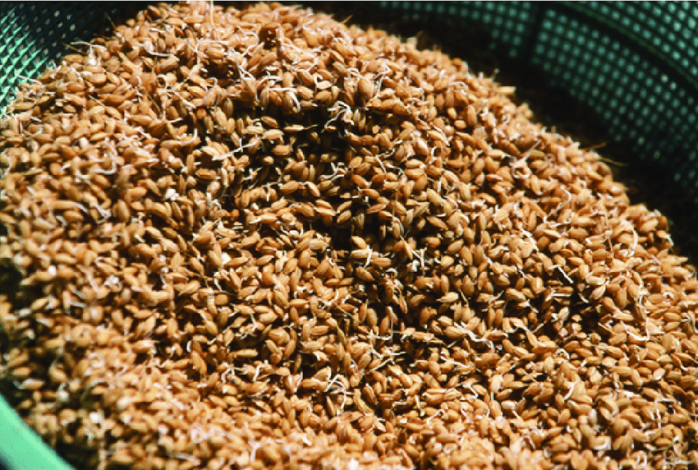
File Photo
Bangladesh, the land of rice, once cultivated many different varieties of rice that were developed naturally. Farmers used to save those seeds in their homes and spread them among many people.
As the population increased, the amount of agricultural land decreased. As a result, high-yielding seeds have to be resorted to to produce more crops on less land. The seed has gone from the farmer to the multinational company. High yielding varieties of seeds are being developed in laboratories. Due to the loss of diversity, only a few rice species are being cultivated.
Many varieties of rice have been lost in this reality. But among these, some of them are saving the seeds of various species out of their pure love for rice and sustaining the indigenous species of rice.
One such paddy seed bank has been established in Dublai village of Tano Upazila of Rajshahi, named “Seed Bank”—the seed bank functions in a half-baked house in the village. The bank, which started eight years ago, has so far stored 261 varieties of rice seeds. Its entrepreneurs are keeping the life of endangered indigenous rice paddy alive through a very planned and creative initiative.
According to the newspaper, this seed-bank works to preserve the seeds of indigenous rice and spread it among the farmers. For this, they organize seed exchange and the Navanna festival every year in the month of Agrahayan when new paddy grows. It was attended by farmers, university teachers, researchers, scientists, poets and writers from all over the country. This festival is mainly organized to save the life of paddy which is almost lost from nature.
The seed bank was founded in 2015 by a farmer named Yusuf Mollah. An environmental organization supports it. Although he died two years ago, the farmers of the village are carrying on the work in the way shown by him. The seed bank has a steering committee, which meets every month to decide what to do.
Farmers from different regions of the country exchange seeds to save indigenous species of rice. Since its inception, seeds have been distributed and exchanged among 5,180 farmers. According to the rules, if one kg of seed is taken from the festival, then at least five kg must be returned by cultivating that paddy next year. Apart from seed exchange, paddy cultivation is done by creating plots to keep seed embryos alive under the initiative of this bank.
I applaud the initiative of the seed bank to preserve the indigenous rice seeds and disseminate them among the farmers. Let the precedent set by the seed bank spread to other parts of the country as well.
Source: Online/GFMM
Comment Now